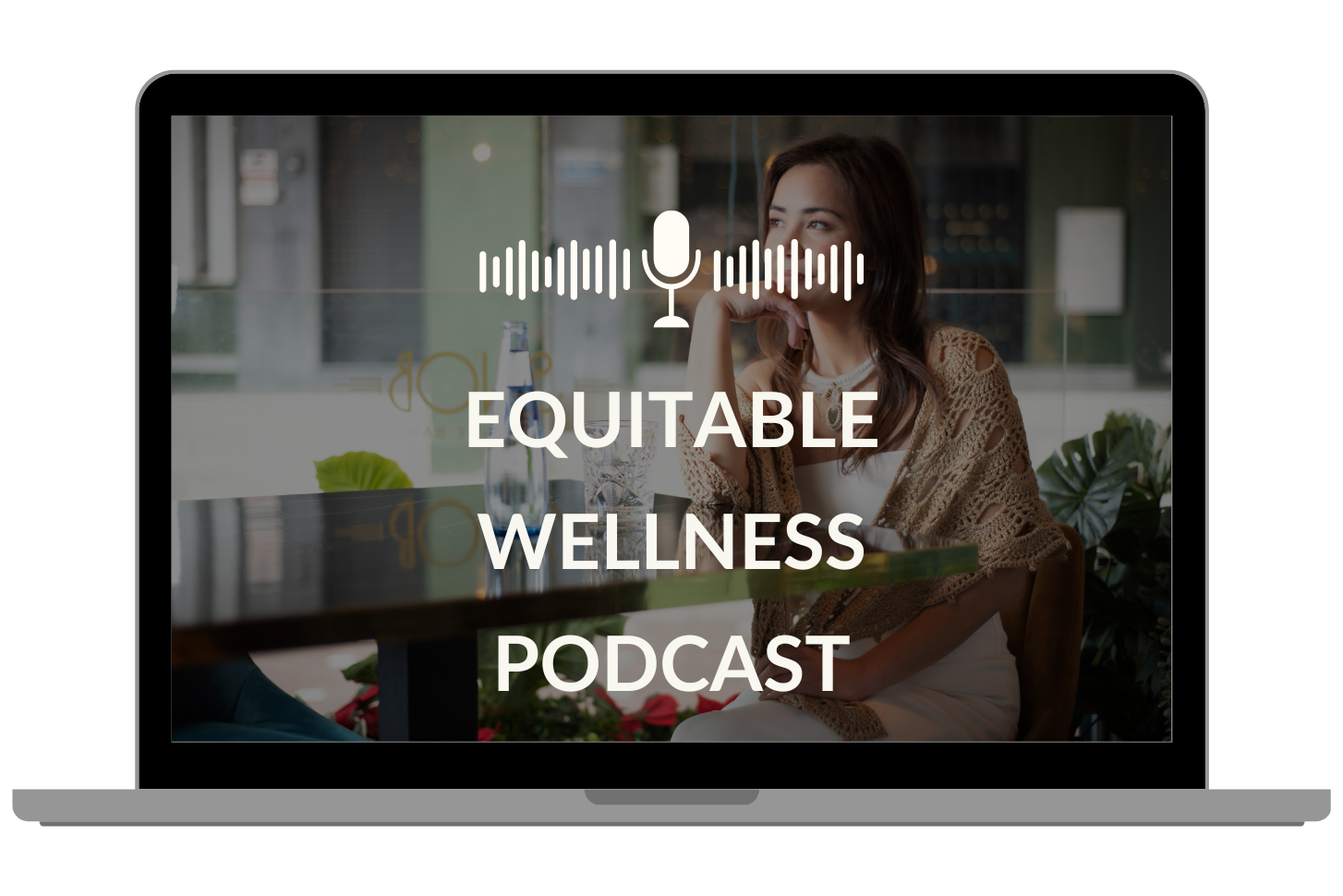When Google's on your shit list
On degoogling and marketing beyond algorithms

Confession…
I do marketing… but I notice I really can’t stand Google. I even do SEO 😅
I’ve noticed as a consumer I’ve started on a path of de-Googling. But what do we marketers do when we find Google on our shit list?
Furthermore, empowered by our last conversation with The Reluctant Capitalist, I dare to ask, what if there’s another way?
What if we don’t have to choose between privacy and profit, or human rights and profit?
There is another way. We can divest, do right by others, and be profitable.
Even be hella happier.
DeGoogling and Marketing Beyond Algorithms
But first I want to say that if you’ve ever considered divestment—from any company, for any reason—you’re not alone.
Wix, Spotify, Amazon, X, Coca-Cola, Meta, Adidas, Zara, Target… These are just a few companies among many that have earned their protests in recent months and years. Many wish to de-center other Big Tech players, including Google, Microsoft, and Apple.
I think the first company I ever boycotted was Chick-Fil-A (much as I ate up those waffle fries as a 15-year-old).
There are times and seasons in our lives when boycotting because of our values becomes our imperative. Sometimes it lasts for years, other times permanently.
(Sometimes it’s 7 years on and 7 years off, like my case with Facebook and social media. I’m wondering whether it’s time for 7 years off again, starting in 2026.)
An Invitation
Before I get on with deGoogling, here is an invitation:
- As a reminder, you’re invited to Substack Live on November 3, Monday, at 12pm New York time / 6pm Spain time! To join the live with Marisa Guthrie, you can download the app. Or catch the replay. We’ll be discussing the meaning of the phrase, “It’s Our Time.”
- Up until an hour ago, I’d wanted to invite you to the webinar Marketing Without Social Media or Paid Ads, hosted by Maple Creative, the trusted web design agency I’ve introduced previously. As the webinar has just been cancelled, I’ll hopefully give you a rescheduled date ASAP. For the last 7 years, Maple has helped their clients grow beyond algorithms.
So Google’s on your shit list.
Trust me, you’re not alone. There are hundreds of thousands of followers of the official r/degoogle subreddit, posting thousands of messages weekly. The main reasons people choose to De-Google their lives are for privacy concerns, data control & ownership, reducing dependency on Big Tech and breaking up an illegal monopoly, having less advertising & algorithm influence, and security risks & breaches.
Plus Google’s collaboration with ICE and the IOF.
I’ll share my personal reasons for going against the grain, to add or comment on the list.
Though for privacy alone, I think De-Googling is far worth the effort.
“Ultimately, arguing that you don’t care about the right to privacy because you have nothing to hide is no different than saying you don’t care about free speech because you have nothing to say.”
—Edward Snowden



3 reasons among many to DeGoogle
Although I’d already been using some alternatives to Google for years, my beef with them has really picked up since February.
That’s not only when Google started to display the Gulf of Mexico as the Gulf of America on Google Maps to North American users.
That’s also when they rolled back on calendar mentions of Pride Month, Black History Month, Indigenous Peoples Month, Hispanic Heritage Month, Women’s History Month and more, in alignment with more conservative political control.

Reason #1.
So the first reason I’ll emphasize for wanting to break up with Google and Meta is that they are centralized, ad-driven data companies that both monetize user data and manipulate it for political gain.
“In my mind, they had weaponized that brain hack for profit,” Jon Stewart said, sitting across Nobel Prize winner Maria Ressa. “They hadn’t yet weaponized that brain hack for political consolidation and power.”
They spoke of what had happened in the Philippines, now playing out in the US—alluding to the social media lies, mass manipulation, and disinformation that led to the 2016 presidential election of Rodrigo Duterte.
“It felt like they weaponized the algorithm for profit. Now they’re weaponizing it for both profit and political consolidation.”
—Jon Stewart
You can catch the full Daily Show with Maria Ressa to hear more commentary about how social media and algorithms boost authoritarianism.
“By design, these platforms spread lies,” Maria Ressa begins…
By design, these platforms spread lies. Social media spreads lies—by a 2018 MIT study, at least six times faster. So by design, lies spread faster. That’s the incentive. And then in 2017, we saw in our country, in the Philippines, that if you lace it with fear, anger and hate, it can go viral.
That’s the incentive structure. So that was used to attack us. Now, imagine if you’re pumped full of—in the Nobel lecture, I called it: toxic sludge.
Online violence is real world violence. So they hacked our biology. Thinking fast, thinking slow. We’re thinking fast, people.
Our emotions. They change the way we feel, to change the way we look at the world, to change the way we act, to change the way we vote. And as of March this year, V-DEM in Sweden said that 72 percent of the world is now under authoritarian rule.
That we are electing illiberal leaders democratically, because of insidious manipulation. So they go hand in hand, money and power.
—Maria Ressa, Nobel Peace Prize-winning journalist and author of
How to Stand Up to a Dictator
(on The Daily Show with Jon Stewart)
Reason #2.
The second reason I’ll cite is that I frankly don’t trust Google, nor my data with Google.
I frankly prefer alternatives as superior products that I enjoy using more. Email, browsing, storage… The list goes on… There are many ways to have a far better experience and feel good about investment in choices that respect data and privacy.
Reason #3.
I applaud the merits and results of the BDS Movement (Boycotts · Divestment · Sanctions) in pressuring governments, institutions, and corporations into meaningful accountability through economic and cultural boycotts, sanctions, and divestment.
BDS decries tech companies and weapons manufacturers, among other brands, most complicit in accelerating genocide and automating apartheid.
These are companies that have directly put in peril the lives of 2 million+ Palestinians, solely in the name of profit, exploitation, extraction, and boundless capitalism.
Microsoft, Google, Amazon, Palantir, IBM and HP are among those named in a UN report. No Tech For Apartheid has long been denouncing Google and Amazon for military contracts inciting genocide and state violence, from Project Nimbus to Google’s $45 million deal with Israel for propaganda ads.
I’d say it’s time that enough is enough. I refuse to contribute to mainstream business-as-usual, genocide-as-usual that is knowingly starving and destroying an occupied population while continuing to violate a ceasefire.
At least I can erode it if not erase it.
“Friends, I love the community I have found on Instagram and Facebook, but I can’t in good conscience continue to post on a Meta platform,” wrote my artist friend Domenica Brockman back in February.
She noted taking a big break from Google and Amazon as well.
“We can vote with how we spend our time and money. And it has never been more clear how much it matters.”
The two-tiered Internet: Two worlds
The truth is that de-Googling is not a one-and-done process. As a digital marketer and website designer, there are times and places to have to engage with a shared Google doc or test something on a Chrome browser (not to mention the litany of SEO tools that require Google Search Console and all of Google’s data).
But I’m sharing that even if being 100% free of Google may be as futile as being 100% free of capitalism (a system by default built on oppression)—giving over that much less data and control to Google is freeing and worthwhile.
And the beauty, in the end, I assert, is that it doesn’t have to come at the cost of profit. In fact, for those sensitive and values-driven among us, this divestment may very well be the key to our peace of mind and freedom.
One of the marketers I follow, sam ogborn, has asserted what we’re observing, that the Internet is dividing into two worlds.
One Internet is based on the attention-driven and ads-driven, algorithmic economy. This is the world of AI-generated content and algorithmic feeds, “where you are the product.” The other is the trust economy.
For those of us not wishing to play the game in the casino of the first world, we’re not gambling where the house is expected to win. But building trust through consent-based marketing, relationship building, and respect for privacy and human rights is worth the energy and investment.
It feels better, it’s more liberating, it’s more consensual, and it doesn’t require feeding into a system that is the mainstream way of doing things (business-as-usual, violence-as-usual).
It gives us the space to build a new system based on our values.
We can imagine, reimagine, build, rebuild and co-create the trust economy together.
Says Sam, “The future is algorithm free.”
So you want to De-Google your life
I can say as a consumer, as a business owner, and as a marketer that holding the paradox of lessening reliance on Google is a challenge.
I agree with many others committed to de-Googling that you can start one application at a time. You might be surprised how freeing and fun the decentralization process is, in contributing to a balanced tech ecosystem and, perhaps, to a better world for our collective great grandchildren’s children.
The only affiliate link I’ll drop would be to Fastmail (get 10% off your first year), which I’ve loved using the last three years. While I have a Google account for business solely for Drive access purposes, I absolutely love handling emails outside of Gmail. For me, privacy is worth paying for, as well as not being retargeted for ads based on my email. Fastmail provides many custom filters that make email handling a far better process than weeding through distraction after distraction.
Proton Mail, a Swiss company, is another I’ve seen mentioned a bunch. They could be handy for Drive and Docs replacements, at least for now. Internxt, a Spanish company, is another I’ll mention for cloud storage.
For browsing I’m all about Firefox, for search Ecosia or DuckDuckGo, and for photos I’m going in the direction of hard drives (although I’ve heard good things about Ente Photos, which is an open source and end-to-end encrypted alternative to Apple and Google).
For calendars, Fastmail works just fine, especially in conjunction with Morgen.so.
There are endless degoogle expressions that can be customized to you. Have fun exploring services that are worth it. There is a “cheat sheet” below for reference, but there are many solutions. Decentralizing tech gives us great options.
I know today’s message is more “thinking in public” than an all-in-one deGoogled marketing system for brands that of course will have to come to terms with their values clashing against mainstream marketing.
But keep following along as I share perspectives of creative flow within the trust economy—without the default exploitation we’re expected to assimilate.
In this space, I’ll continue to explore my latest curiosities on deGoogling, digital minimalism, and divestment.


Welcome, I’m Shayna Grajo
Hi, I’m Shayna Grajo. I help healers, educators & artists build a long-term, sustainable marketing presence through SEO, copywriting, and website design. Together we nurture digital spaces and sustain your visibility with ease and integrity.
JOIN NOW
Equitable Wellness on Substack













